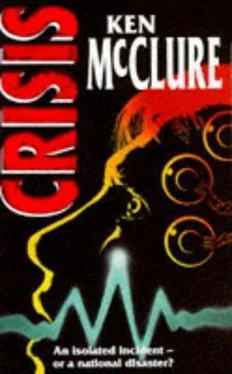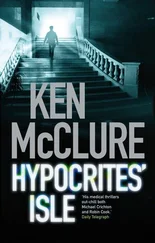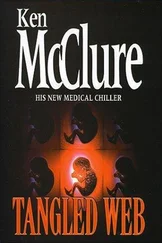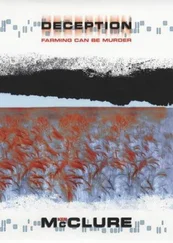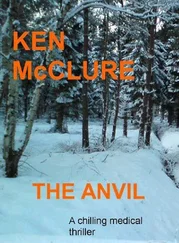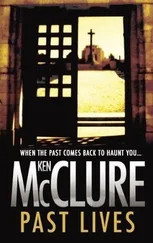Ken McClure - Crisis
Здесь есть возможность читать онлайн «Ken McClure - Crisis» весь текст электронной книги совершенно бесплатно (целиком полную версию без сокращений). В некоторых случаях можно слушать аудио, скачать через торрент в формате fb2 и присутствует краткое содержание. Жанр: Триллер, на английском языке. Описание произведения, (предисловие) а так же отзывы посетителей доступны на портале библиотеки ЛибКат.
- Название:Crisis
- Автор:
- Жанр:
- Год:неизвестен
- ISBN:нет данных
- Рейтинг книги:3 / 5. Голосов: 1
-
Избранное:Добавить в избранное
- Отзывы:
-
Ваша оценка:
- 60
- 1
- 2
- 3
- 4
- 5
Crisis: краткое содержание, описание и аннотация
Предлагаем к чтению аннотацию, описание, краткое содержание или предисловие (зависит от того, что написал сам автор книги «Crisis»). Если вы не нашли необходимую информацию о книге — напишите в комментариях, мы постараемся отыскать её.
Crisis — читать онлайн бесплатно полную книгу (весь текст) целиком
Ниже представлен текст книги, разбитый по страницам. Система сохранения места последней прочитанной страницы, позволяет с удобством читать онлайн бесплатно книгу «Crisis», без необходимости каждый раз заново искать на чём Вы остановились. Поставьте закладку, и сможете в любой момент перейти на страницу, на которой закончили чтение.
Интервал:
Закладка:
‘What about a drink at lunch-time?’
‘I meant a more professional talk,’ said Bannerman.
‘Oh I see. Well I think I should warn you that I suspect your “patients” are a bit beyond psychiatric help,’ said Drysdale.
Bannerman did his best to respond to the joke but it was laboured and Drysdale sensed it. ‘How about two-thirty?’ he asked.
‘That suits me fine,’ said Bannerman. ‘Your place or mine?’
‘Come up,’ replied Drysdale.
For Bannerman to arrange a meeting with a psychiatrist it had been very much a case of the singer not the song because he had little time for psychiatry. On the other hand, he had great respect for David Drysdale whom he had known and liked for five years. Drysdale knew and freely admitted the shortcomings of his speciality. He never hid behind meaningless jargon as Bannerman suspected so many of his psychiatric colleagues of doing. When he heard Drysdale describe electro-convulsive therapy as ‘wiring the patients up to the mains to see what would happen’ he knew that he had found a psychiatrist he would like. As he got to know him better, he discovered that the man had a genuine and sincere concern for the welfare of the mentally ill. It was his regret that so little could be done to help in so many cases.
Drysdale’s office was two floors above the pathology department. The walls were decorated with examples of schizophrenic art and a small print of Edvard Munch’s, The Scream. Drysdale, a sallow-skinned man with dark hair and heavy-rimmed spectacles, which made him look like an East European student, invited Bannerman to sit. ‘What can I do for you Ian?’ he asked.
‘I think I may need help,’ said Bannerman awkwardly.
Drysdale considered making some comment about ‘not thinking he would see the day’ but thought better of it, seeing the troubled look on Bannerman’s face. Tell me about it,’ he said.
Bannerman told him about his experience with the emergency section. ‘My hands were actually shaking,’ he said. ‘And then I had a nightmare about it last night.’
Drysdale nodded and said, Tell me.’
Bannerman related all that he could remember about the dream and then asked, ‘Do you mind if I smoke?’
Drysdale made a sign with his hands that indicated resignation but not approval. ‘You should give it up,’ he said.
Bannerman ignored the comment.
‘What else should I know?’ asked Drysdale.
‘Sometimes I’m sick after doing post-mortems.’
Drysdale nodded. He had started making notes. ‘How old are you Ian?’
‘I’ll be thirty-eight next birthday.’
‘How do you feel about that?’
‘Rotten.’
‘Me too,’ said Drysdale. ‘I’ll be thirty-nine. Any other problems?’
‘Insomnia.’
‘You waken up at three in the morning and feel wide awake. You can’t get back to sleep for about an hour. This happens every second night on average?’
‘How did you know that?’
‘Sheer bloody brilliance,’ said Drysdale. ‘But apart from that, I recognized the symptoms. They’re textbook. It’s depression not insomnia.’
‘So you think I’m clinically depressed,’ said Bannerman.
‘A little,’ replied Drysdale, ‘but the main problem is stress.’
‘Stella thinks it’s a mid-life crisis,’ said Bannerman.
‘She’s right,’ said Drysdale, ‘but there’s another factor involved and I’m not quite sure what it is. I’ll have to have a think about it.’
‘What do I do about it in the meantime?’ asked Bannerman.
‘I can suggest pills but you know as well as I do they’ll just dull your senses so you won’t feel so stressed. That’s probably not such a good idea in our line of work. How about booze in the evening?’
‘I think I’ve used up that option,’ said Bannerman.
‘Me too,’ said Drysdale. ‘How about a break? A holiday might be just what you need.’
‘Stella suggested that. I’m considering going climbing in Scotland.’
‘In January!’ exclaimed Drysdale. ‘You’re sicker than I thought!’
To each his own, Doctor,’ said Bannerman with a smile. He got up to go.
‘I’m sorry I couldn’t be of more help,’ said Drysdale, ‘but keep in touch. I don’t think it’s anything serious and Stella’s probably right about it being fear of forty but if you should begin to feel worse give me a call, any time, day or night.’
Bannerman thanked Drysdale and promised to buy him a drink in the near future. He returned to the Pathology Department where Olive had left a package on his desk. It was marked ‘On Her Majesty’s Service’ and had come from the Medical Research Council by special delivery. He opened it and found three microscope slides and a covering letter. The letter was from the coordinator of the MRC’s Survey on Degenerative Brain Disease, Dr Hugh Milne. It asked if he would mind examining them and reporting his findings as quickly as possible. There was also a message to say that Stella had phoned; it was nothing important but he was to be reminded that he couldn’t call her back because she would be in theatre all afternoon.
Bannerman took the slides to his personal microscope and removed the dust cover. He clipped the first to the stage and adjusted the tungsten light before focusing on the stained section of the brain. There had been a marked lack of details with the package and no indication about the source of the material, save for the fact that they were brain sections. There was an air of anticipation about him as he scanned around to find the clearest fields. It didn’t take long to find what he was looking for — unequivocal evidence of degenerative disease.
It was so obvious that Bannerman was puzzled to the point of feeling mildly annoyed that he had been asked for his opinion on something so clear-cut. He had rarely seen spongioform areas so well marked. This was the kind of slide that could be used for illustrating text books. The second and third slides were almost identical to the first. ‘What on earth are they playing at?’ he muttered as he removed the last slide and turned off the lamp. He asked Olive to get him the MRC coordinator on the phone.
‘Dr Bannerman? Good of you to call,’ said Milne after a short wait. ‘I take it you received the slides?’
‘I’ve just had a look,’ said Bannerman.
‘What do you think?’
‘I think I’ve just looked at three perfectly prepared brain sections from the same patient. He or she would be in their mid to late seventies and has just died of Creutzfeld Jakob Disease.’
‘You’d be wrong,’ said the coordinator.
‘What?’ exclaimed Bannerman.
‘What would you say if I told you that each of the slides came from a different patient, all were under thirty and none had been ill for longer than three weeks?’
‘I’d say there had been a mix-up in the slides,’ said Bannerman.
‘We are assured that there has been no mix-up.’
‘I find that incredible,’ said Bannerman.
‘Suppose I was to add that the three dead patients worked with infected sheep?’
‘What?’ exclaimed Bannerman. ‘You’re not suggesting that they died of Scrapie by any chance?’
‘I wish I wasn’t. Can we meet to discuss this further?’
‘When?’ asked Bannerman.
‘I think it had better be as soon as possible,’ said the coordinator.
‘Why me?’ ventured Bannerman.
‘Your reputation, Doctor. Your work on degenerative brain disease is second to none and right now we need the best we’ve got. I’ll explain more when I see you. Would tomorrow at eleven be a possibility?’
Bannerman checked his diary before saying that it would.
‘Did you see about taking time off?’ asked Stella when Bannerman saw her later.
Читать дальшеИнтервал:
Закладка:
Похожие книги на «Crisis»
Представляем Вашему вниманию похожие книги на «Crisis» списком для выбора. Мы отобрали схожую по названию и смыслу литературу в надежде предоставить читателям больше вариантов отыскать новые, интересные, ещё непрочитанные произведения.
Обсуждение, отзывы о книге «Crisis» и просто собственные мнения читателей. Оставьте ваши комментарии, напишите, что Вы думаете о произведении, его смысле или главных героях. Укажите что конкретно понравилось, а что нет, и почему Вы так считаете.
